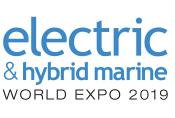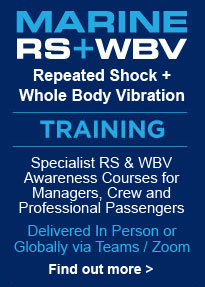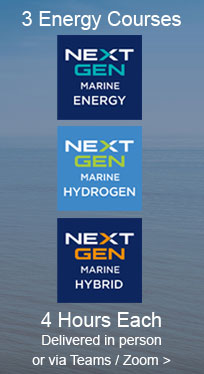Exploring the Future of Maritime in Amsterdam

01.07.2019

Amsterdam - The Netherlands - 25 to 27 June 2019
In June 2019 the Electric & Hybrid Marine Conference was held alongside of the Autonomous Ship Technology Symposium at RAI Amsterdam in The Netherlands.
The international group explored key issues and technologies that could enable increased electrification and hybridization of vessels - as well as legal and regulatory issues relating to the development of autonomous shipping.
The global industry event draws around 3000 attendees to view 150 exhibitors, including some of the world’s leading research and development propulsion pioneers. Over 350 delegates attended the conference sessions. Presentations considered a number of electric and hybrid options along with associated technology for the power and propulsion of ships and small craft. Innovative power sources linked to future requirements include LNG and fuel cell technologies.
Electric & Hybrid Marine Conference Programme 2019
DAY 1 Chairman: Prof John Carlton - Professor of marine engineering
City University London
AM: Simulation and Modelling
PM: Power Electronics and Control
DAY 2 Chairman: John Haynes - AFNI FRINA
Managing Director, Shock Mitigation
AM: Case Studies and Applications
PM: Port Technology as a Driver of Marine Electrification
DAY 3 Chairman: Adrian Heuer, Electrical energy storage scientist
Battery Engineering Group - Fraunhofer ISE
Developments in Energy Storage Systems
John Haynes said, 'I have chaired both conferences, but this year my focus was on Electric & Hybrid Marine. It was a privilege to lead sessions that looked at case studies and actual applications where I was able to take a deep dive and ask the hard questions! As a mariner I was able to observe how vessels are evolving with innovation in waters I have sailed in - from the Mediterranean, French canals and rivers, to Dutch waters and the Port of Amsterdam.'
THE NETHERLANDS
Amsterdams Clean Air Policy means that the days of diesel and petrol cars in the city are numbered. The City of Amsterdam aims to meet the World Health Organization’s air quality guidelines from 2030. Achieving this challenging ambition will increase life expectancy for Amsterdammers by three months. Laurens van Mourik, project manager of the sailing department for City of Amsterdam provided an introduction to the marine parts of the city, along with the projects and pilot studies currently underway. He also outlined the city’s ambitious goals for 2025 and how they are going to reach them.
Any company building electric boats, providing energy storage or dockside charging infrastructure has a huge opportunity. You only have to fly over the coastal areas of The Netherlands to realise that living below sea level and reclaiming land has been achieved by the Dutch for generations. Once decided at state and local level, next generation energy will happen in The Netherlands. A game changer is that all passenger boats in Amsterdam will be required to go 100% electric - by law.
NEW ZEALAND
Jeremy Ward of the Wellington Electric Boat Building Company (WEBB Co) shared his experience of designing and building a 135 passenger, 20 knot, 100% electric ferry that will be launched at the end of 2019. WEBB is a subsidiary of East By West Ferries, which is commissioning this vessel to augment its existing two ferry operation. The project draws on Southern Hemisphere experience in designing, developing and manufacturing highly energy-efficient carbon fibre catamarans to which it adds electric drivetrain technology currently in use in the Northern Hemisphere.
DENMARK
Annie Kortsari, research associate at CERTH-HIT Greece, gave an evaluation of the first all-electric ro-ro E-Ferr. ‘Ellen' is the first all-electric passenger and vehicle ferry able to sail up to 21 nautical miles. Constructed using funding from the Horizon 2020 program, Ellen will be put into operation in Denmark connecting the island of Aero to the mainland. The presentation looked at the evaluation methodology used to assess E-Ferry including four aspects: technical evaluation, environmental evaluation, economic evaluation, societal evaluation.
GERMANY
Kilian Hoffmann, of EST-Floattech, presented on the potential for a hydrogen and battery powered pushing barge. A consortium of companies is building the first German barge, which will transport Siemens gas turbines from Berlin to Hamburg. ELEKTRA anticipates the desire to make all Berlin’s transport zero emission by 2050. Because the harbour basins lie directly adjacent to residential areas, noise is also a major issue. Electric motors generate 70% less noise than the current diesel engines. The project also looks at the challenge of providing a bunkering infrastructure along inland waterways.
All images are copyright Hybrid Marine Power 2024 unless otherwise stated.
This does not exclude the owner's assertion of copyright over the material.
eNews
15.04.2024
MariNH3 Conference 2024
MariNH3 Conference 2024 is being held at Grand Plaza Hotel,…
eArticle
06.10.2023
Challenges of Unpredictable Marine Energy
From running Energy Transition training for significant maritime organisations technology…
Video
Round The World solar boat Turanor PlanetSolar
MS Tûranor PlanetSolar is the largest solar boat in the world. This 35 metre (115 feet) catamaran operates solely on…







